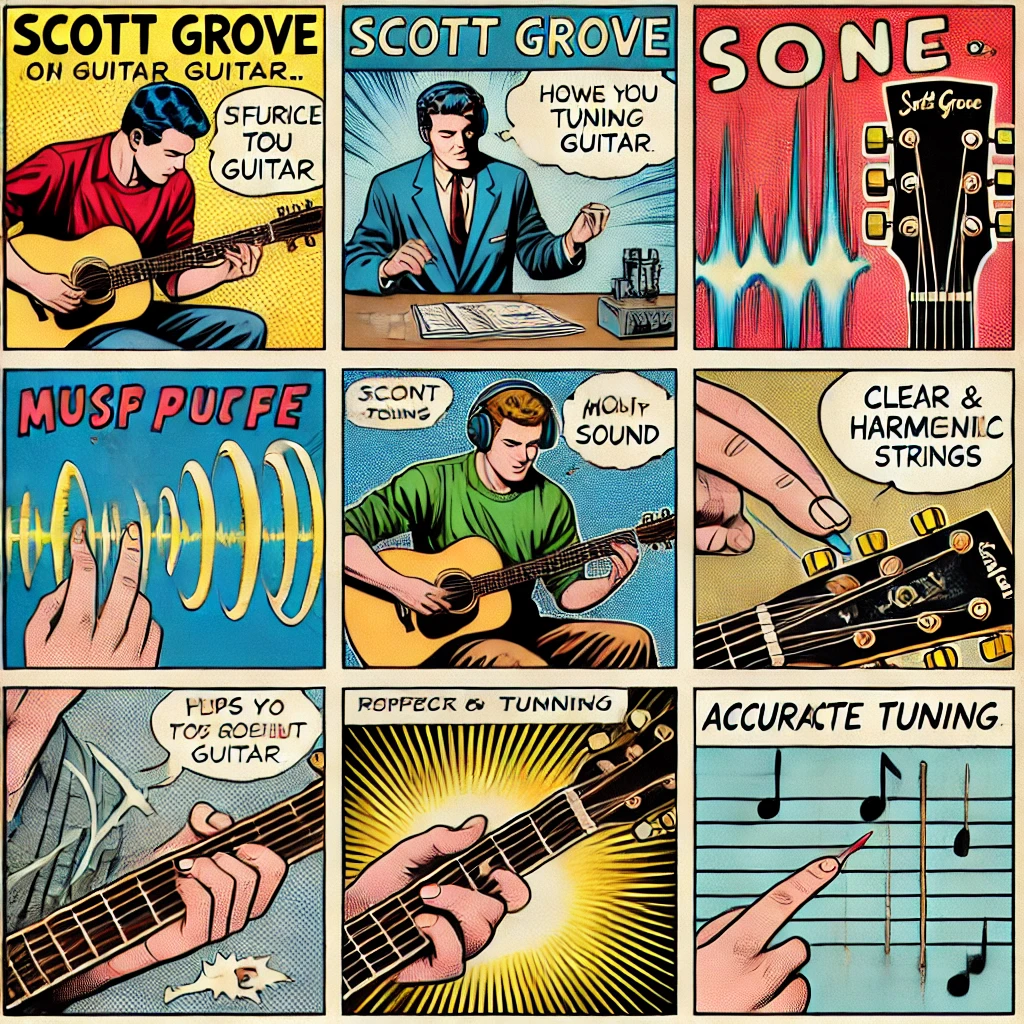You Are Tuning Your Guitar Wrong I Guarantee It by Scott Grove
https://www.youtube.com/watch?v=8tfxy_zs0Mo
Scott Grove is a guitarist known for his online guitar lessons and tutorials, covering a wide range of topics including guitar tuning, playing techniques, and music theory. He has a particular interest in unconventional approaches to music and guitar playing, which includes his perspectives on guitar tuning.
Grove has discussed various tuning methods beyond the standard EADGBE tuning, exploring the benefits of alternative tunings for creativity, ease of play, and achieving unique sounds. His approach to guitar tuning often emphasizes the importance of finding what works best for the individual player, encouraging experimentation with different tunings to expand one’s musical vocabulary and expressiveness.
Alternative Tunings
In his lessons, Scott Grove might explore several alternative tunings such as:
– Drop D (DADGBE): This tuning lowers the sixth string one whole step to D, allowing for easier power chords and deeper bass notes. It’s popular in rock and metal genres.
– Open Tunings: Open tunings adjust the strings to form a chord when played open, facilitating slide playing and fingerstyle techniques. Common open tunings include Open G (DGDGBD) and Open D (DADF#AD).
– DADGAD: A tuning that offers a mix of open and modal sounds, popularized in folk and Celtic music. It provides a distinctive sound that is versatile for both strumming and fingerpicking.
Grove’s Philosophy on Tuning
Scott Grove often emphasizes the practical aspects of guitar playing, suggesting that players should use whatever tuning helps them achieve their musical goals. His philosophy includes:
– Creativity: Alternative tunings can inspire new chord voicings, melodies, and harmonic textures that are not as readily accessible in standard tuning.
– Playability: Some tunings may be easier on the hands and allow players with physical limitations to enjoy playing the guitar comfortably.
– Sound: Different tunings can produce a wider sonic palette, offering sounds that make songs and performances stand out.
Educational Approach
Grove’s educational content is known for being straightforward and accessible, often aimed at beginner to intermediate players. He provides clear explanations and demonstrations of how to achieve and use various tunings, along with tips for transitioning between them. Grove’s lessons typically include practical applications of these tunings in songs or improvisational contexts, helping students understand their musical possibilities.
Conclusion
While Scott Grove is just one of many guitar educators advocating for the exploration of alternative tunings, his approachable teaching style and emphasis on practicality and creativity resonate with many learners. By encouraging guitarists to experiment with their tuning, Grove contributes to the broader guitar community’s understanding of the instrument’s versatility and expressive potential.
